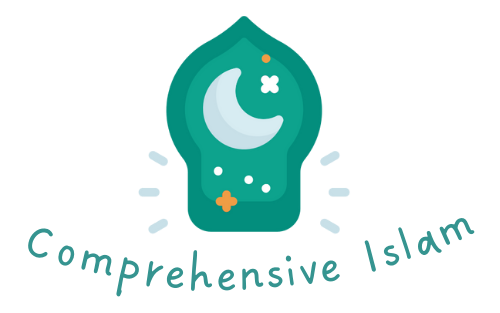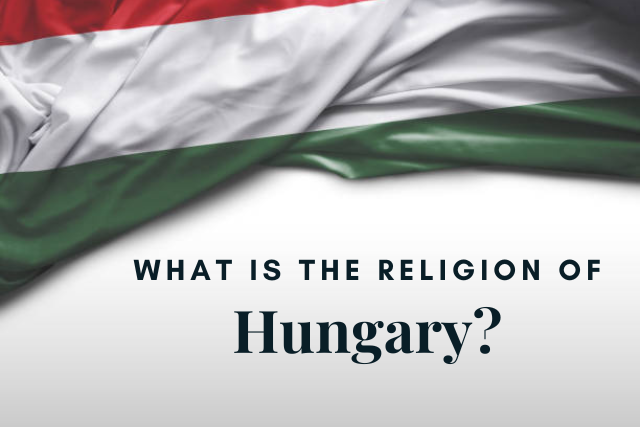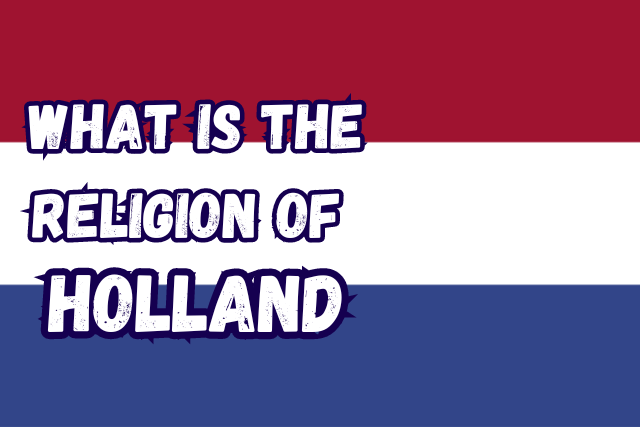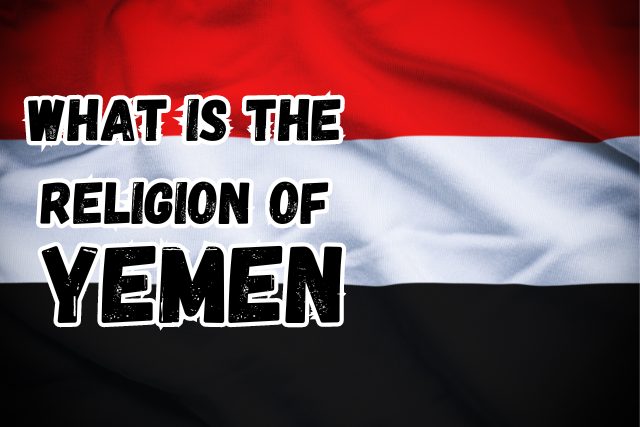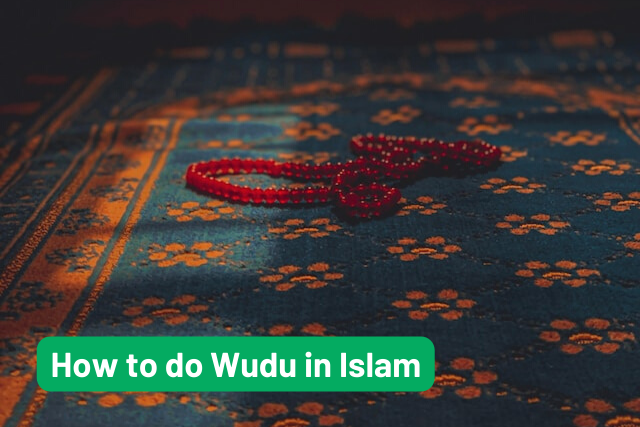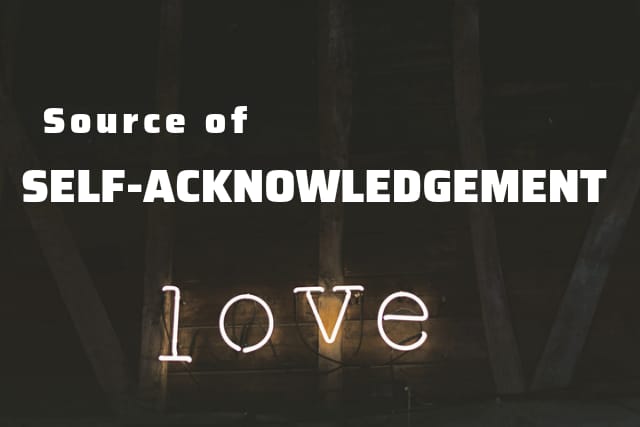What is the Religion of French Polynesia
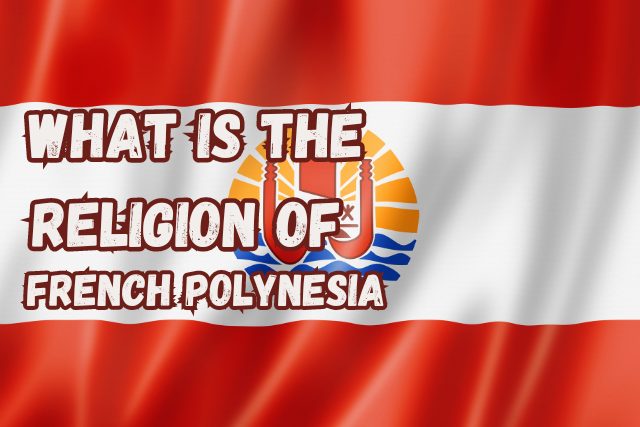
Welcome to the enchanting paradise of French Polynesia. I’ll delve into the unique spiritual identity that graces this South Pacific paradise. Where turquoise lagoons and coral reefs set the stage for a diverse tapestry of cultural and religious traditions.
Ancient Polynesian beliefs, rooted in nature’s harmony, blend with Christianity and world religions in French Polynesia. The religious narrative is a fascinating odyssey through tradition and contemporary expressions of faith. The islands’ cultural richness and natural beauty create a unique backdrop for the spiritual mosaic of French Polynesia.
Let’s uncover the soulful narratives that shape the spiritual essence of these idyllic islands. Ready for an immersive exploration of French Polynesia’s religious heritage? Let’s get started.
Christianity

The main religion in French Polynesia is Christianity. A significant portion of the population adheres to various Christian denominations. The two primary branches are Protestantism and Roman Catholicism, each contributing to the religious fabric of the islands.
Protestantism
Protestantism is introduced by European missionaries. It has become a significant aspect of religious life in French Polynesia. Several Protestant denominations are affiliated with churches across the islands, especially among the Tahitian population.
In addition, the influence of Protestantism extends beyond religious practices. It impacts cultural expressions and the daily lives of the Polynesian people.
Roman Catholicism
Roman Catholicism also holds a prominent position within the Christian landscape of French Polynesia. Whether urban or rural, Catholic churches with distinctive Polynesian motifs stand out. Catholic traditions, including religious events and festivals, are observed with reverence, contributing to the religious tapestry of the islands.
Christian Festivals and Observances
Christianity in French Polynesia is celebrated through various religious festivals and observances. Christmas and Easter, marking the birth and resurrection of Jesus Christ, are joyously observed across the archipelago. Church services, festive gatherings, and traditional Polynesian elements create a unique blend of Christian celebrations.
Christian Influence on Culture
The influence of Christianity extends beyond religious ceremonies, influencing the cultural fabric of French Polynesia. Christian values and teachings are interwoven with daily life, impacting social norms, family structures, and community dynamics. The church often serves as a focal point for both spiritual and social activities, fostering a sense of community among believers.
Traditional Polynesian Beliefs
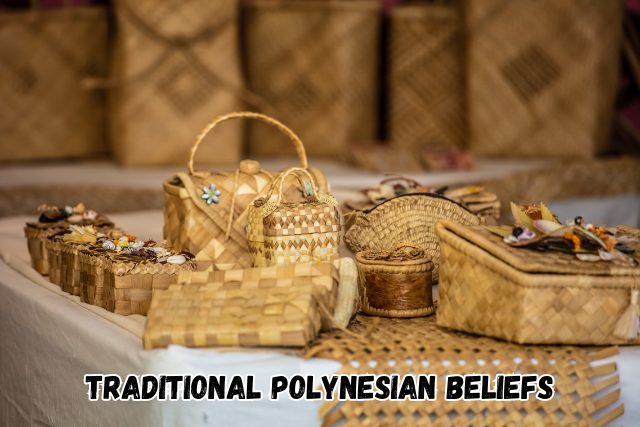
The cultural and spiritual identity of French Polynesia is intricately woven with the threads of traditional Polynesian beliefs. It’s a rich tapestry that reflects the intimate connection between the islanders, the natural world, and the divine. These indigenous beliefs have endured, shaping the way of life for the people of French Polynesia.
Ancestral Spirits and Deities
Central to traditional Polynesian beliefs are the ancestral spirits and deities that inhabit the land, sea, and sky. Each element holds a sacred significance, with gods and goddesses associated with the ocean, mountains, and celestial bodies. These entities serve as guardians and guides, embodying the spiritual essence of the islands.
Connection to Nature
The Polynesians’ spiritual connection to nature is profound, emphasizing a harmonious relationship with the elements. The ocean, with its vast expanse, represents both a source of sustenance and a realm of divine power. The mountains are seen as sacred abodes, and the celestial bodies carry symbolic meanings deeply ingrained in the Polynesian cosmology.
Rituals and Ceremonies
Traditional Polynesian beliefs find expression through elaborate rituals and ceremonies. These mark significant life events, celestial occurrences, and seasonal changes.
Dance, music, and chants are integral parts of these ceremonies, serving as conduits for communication with the divine. The intricate art of tattooing also carries spiritual significance, symbolizing cultural identity and connections to the spiritual realm.
Tapu
Central to Polynesian spirituality is the concept of “tapu,”. It’s a notion of sacredness and restrictions that govern certain places, objects, and activities.
Furthermore, Tapu serves as a safeguard for the sacred and underscores the importance of maintaining spiritual harmony. Violating tapu can bring about spiritual consequences. It reinforces the respect and awe with which the Polynesians approach their environment.
Navigating the Afterlife
Traditional Polynesian beliefs include narratives about the afterlife, where the journey of the soul continues beyond the mortal realm. Life, death, and rebirth are viewed as cyclical phenomena through the concept of the “awa” (spirit) and belief in an ancestral realm
Religious Freedom In French Polynesia
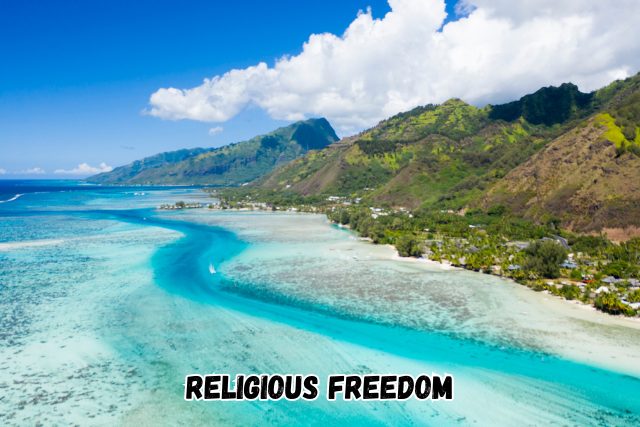
French Polynesia benefits from the legal framework established by France. Which upholds the principles of religious freedom. The French Constitution guarantees freedom of worship and allows individuals to practice their chosen religions without discrimination.
Religious freedom in French Polynesia is manifested in the coexistence of various faiths and spiritual practices. The islands are home to followers of traditional Polynesian beliefs, Protestant and Catholic Christians, as well as individuals exploring alternative spiritual paths. This diversity contributes to the cultural richness of the archipelago.
Moreover, the recognition and respect for traditional Polynesian beliefs play a crucial role in the religious freedom landscape. Efforts are made to preserve and protect indigenous spiritual practices. This acknowledgment reinforces the cultural identity of the Polynesian people.
Bottom Line
French Polynesia, with enchanting landscapes and vibrant culture, has a diverse religious tapestry. Traditional Polynesian beliefs, rooted in nature and ancestral spirits, blend with the predominant influence of Christianity. This syncretic mix, along with openness to other spiritual practices, shapes a unique spiritual landscape showing Polynesian adaptability.
Religious freedom in the archipelago fosters peaceful coexistence of traditional beliefs, Christianity, and other spiritual paths. Efforts to preserve indigenous practices and engage in interfaith dialogue contribute to French Polynesia’s rich cultural identity.
FAQs
What is the religion of French Polynesia?
The main religion in French Polynesia is Christianity, with a significant presence of both Protestantism and Roman Catholicism.
Do traditional Polynesian beliefs still exist in French Polynesia?
Yes, traditional Polynesian beliefs endure, coexisting with Christianity and contributing to the cultural heritage of the islands.
Is there religious freedom in French Polynesia?
Yes, French Polynesia upholds principles of religious freedom, allowing individuals to practice their chosen faiths without discrimination.
Are there efforts to preserve traditional Polynesian beliefs?
Yes, cultural initiatives are underway to preserve and celebrate traditional beliefs.
